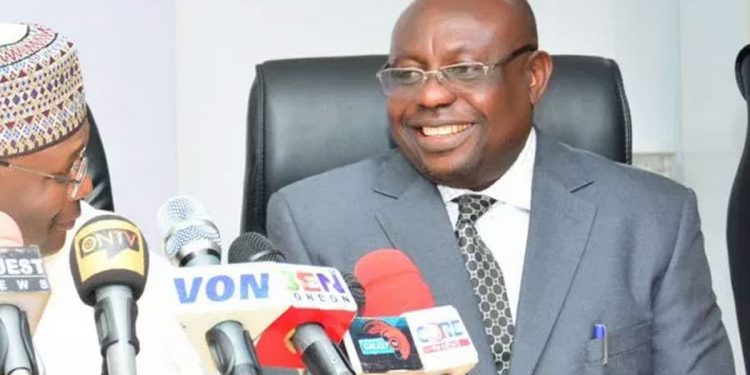2023 ELECTION: Despite the introduction of electronic transmission of results as allowed under the new Electoral Act of 2022, the Independent National Electoral Commission (INEC) have said that the 2023 election results will be collated manually, which could be a reason for concern in some quarters.
BASIC FACTS
- The new Electoral Act of 2022 provides for electronic transmission of the result of elections conducted by INEC.
- This has been tested recently in the gubernatorial elections in the states of Ekiti and Osun to a great admiration by Nigerians.
- The INEC spokesperson have now tried to explain the difference between electronic transmission of results and collation of results, both of which are provided under the Act.
WHAT WE KNOW
The Independent National Electoral Commission has hinted that the collation of results of the 2023 general elections will be done manually despite the adoption of electronic transmission of results.
According to Festus Okoye, INEC’s National Commissioner and Chairman of its Information and Voter Education Committee, the commission would transmit results from polling units to its result-viewing portal, IReV, as witnessed in recent elections.
He however, also stressed that the Electoral Act was clear on how collation should be done, which according to him should be through the usual manual process.
He further to note that there could be situations where disputes could arise from conflicts in transmitted and collated results.
In such a case, he explained that while the collation of results would be done manually, where there was a dispute regarding a collated result or the result from any polling unit.
Therefore, the collation or returning officer would use the original of the disputed collated result, accreditation data from the BVAS device and the results transmitted directly from the polling unit to determine the correctness of the result.
NOTABLE QUOTE
Okoye said: “There is a marked difference between the transfer/transmission of results and the collation of results.
“Section 50(2) of the Electoral Act, 2022 gives the commission the absolute discretion to determine the mode and procedure of voting in an election and the transmission of election results.”
“Sections 60 and 62 of the Electoral Act govern post-election procedure and collation of election results.
“Section 60(1) of the Act provides that the presiding officer shall, after counting the votes at a polling unit, enter the votes scored by each candidate in a form to be prescribed by the commission.”
“Section 60(5) of the Act makes it mandatory that the presiding officer shall transfer the results, including total number of accredited voters and the results of the ballot in a manner prescribed by the commission.
“Thereafter, the presiding officer shall after recording and announcing the results deliver the same along with election materials under security and accompanied by the candidates or their polling agents, where available to such person as may be prescribed by the commission.”
“The implication of this is that the collation process of results is still essentially manual, but the collation officer must collate subject to his verification and confirmation that the number of accredited voters stated on the collated result are correct and consistent with the number of accredited voters recorded and transmitted directly from polling units.”
NEWS ANALYSIS
Clariform Newsdesk notes that the INEC spokesperson was merely throwing some light into some provisions of the new Act. Therefore, any possible misunderstanding or alarm from the comments of Mr Okoye is explainable.
In his explanations, the Electoral Act provides for both the electoral transmission and manual collation, both which are mandatorily carried out as part of the electoral process.
He went further to stress that in the course of performing both mandatory functions under the Act, the electoral officer has a duty to ensure that data in both processes of result tabulation must be same and accurate.
In other words, both the transmitted results and manually collated results must have same accurate data from the polling booths.
So, while the results are mandatorily required to be transmitted immediately, following the end of election, directly from the polling booths to INEC result servers, that is not the end of the process.
In addition, the hardcopy result sheets must also still be collected and sent down to the INEC designated physical result collation centers. This is the part referred to as “manual collation of result.”












